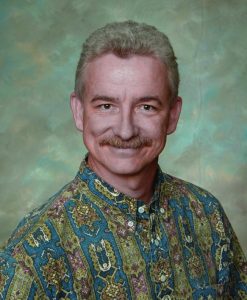 Author Scott Makuakane reflects on Generations Magazine, now in its tenth year.
Author Scott Makuakane reflects on Generations Magazine, now in its tenth year.
Q:
Hawai‘i has the largest older population in the country. How do you think our seniors are currently living and thriving?
Hawai‘i is generally a retirement-friendly state. Taxation of retirement income is relatively benign. Our warm climate and surrounding ocean allow ample opportunities for year-round outdoor exercise and connecting with nature. Our culture is generally inclusive and promotes venues for social interaction. All of these factors form a foundation for a thriving senior population that can enjoy fulfillment and longevity. The key is recognizing the treasure trove and taking full advantage of it.
We have clients in their 70s who are very active in exercise and social groups. One of them recently told us about her hero — a woman in her 90s who attends her Zumba class. Other clients in their 80s are fulfilling their bucket list travel fantasies. It’s encouraging to engage with people like these, who view age as mostly a state of mind and relish each step in their life’s journey. They say 60 is the new 40, but there is no reason that we can’t extend that to 70 or 80 or 90. Sometimes health does not cooperate, but we can do so much proactively to extend the quality of life we enjoy far longer than past generations have.
Q:
What important information or trends do seniors and their families need right now to enjoy better quality of life?
Seniors need to take advantage of all that our community offers. Resources are there and it is important to know where to find them. That is part of the beauty of Generations. Between the magazine, the radio and TV exposure, and the website, much of what is so good and senior-friendly about Hawai‘i is showcased and thereby made available to seniors and their families.
Specifically, a key to quality of life is being connected with other people. Technology can play a huge role here. A voice, a video image or an email can fortify the senior soul. So attaining tech-savviness can be a valuable asset. Seniors who believe “you can teach an old dog new tricks” embrace technology and are more connected than ever before. Of course, technology has a dark side, and people are victimized in Hawai‘i every day by internet and telephone scammers. That’s where family can intervene and help make sure bad things aren’t happening in their ‘ohana.
Q:
Active baby boomers are now seniors. How do you think they will change the way we look at a “frail senior?”
For many of us, seniors are no longer “them.” They are “us.” One thing I have come to appreciate about the Hawaiian culture is that gray hair is often appreciated, respected and given deference. You see this in informal encounters in public places, as well as in more institutionalized settings, such as the various programs and resources that our state and county governments and nonprofit organizations provide. Most people seem to have an awareness of the fact that we enjoy the quality of life we do in large part because of the contributions of previous generations. And they appreciate how current generations are setting the stage for those yet to come.
Throughout Hawai‘i, the word “kūpuna” means ancestor or grandparent. “Frail” is not part of that definition. A kūpuna is an honored elder, a living treasure who has acquired enough life experience to become a leader and teacher. Kūpuna before us have guided us with their wisdom. They are a rich source of experience, knowledge, guidance, strength and inspiration for the next generations.
This is not the case everywhere. On a recent business trip to Boston, I had a brief conversation with a 20-something-year-old. We told him about the word “kūpuna” and asked him what the local term was. Without missing a beat, he said, “I don’t know. F—ing old people, I guess.”
Lucky we live Hawai‘i.


Leave a Reply